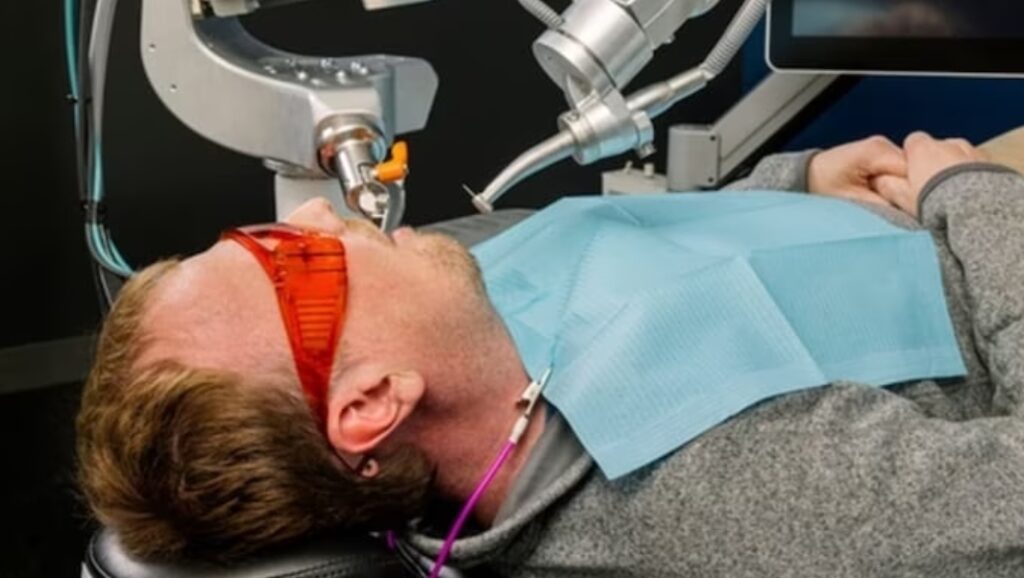Agency Report

A startup company in Boston, US, has made history by using robotic technology to complete the first-ever fully automated dental procedure on a human.
The dental robot, made by Boston-based company Perceptive, has been approved by the US Food and Drugs Administration (FDA). It is guided by AI (artificial intelligence) with 3D imaging software and operates a robotic arm to perform dental tasks.
The system can complete restorative dental work, like crown replacements, in just 15 minutes, typically requiring two office visits. It can also accurately detect potential issues with teeth and gums.
“This medical advancement enhances the precision and efficiency of dental procedures, making high-quality dental care more accessible and improving patient experiences and clinical outcomes,” said Chris Ciriello, founder and CEO of Perceptive.
Perceptive’s robot uses 3D volumetric data to plan diagnostics and treatments. It performs an optical coherence technology (OCT) scan of a patient’s mouth with a handheld intraoral scanner.
The scanner captures detailed 3D images, including those below the gum line, to provide an overall picture of oral health.
Patients can view these images to help them understand their treatment needs.
Besides this, AI algorithms analyse this data to plan treatments, enabling the robotic arm, equipped with dental tools, to perform procedures automatically.
According to Perceptive, its robotic system allows dentists to diagnose and treat more patients with higher quality care in less time, reducing manual labour and minimising human error.
Perceptive has raised $30 million from investors, including Y Combinator, PDS Health, and Ed Zuckerberg, a noted dentist and father of Meta CEO Mark Zuckerberg.
Sychelles-based dental surgeon Dr Bibhakar Ranjan told IndiaToday about how AI robot dentist will become an integral part of dentistry.
“I believe that the AI dental robot might seem daunting to patients right now or even for the dental professionals to accept it in their practice, but I am sure with time, it will become an integral part of dental operatory,” said Dr Ranjan.
He added that while there have been some dental robotic machines used in the recent past but with AI technology, robot dentists will be more successful. It could also reduce the workload to a great extent, he said.
